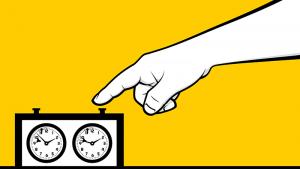
Can A GM And Rybka Beat Stockfish?
Around June, Rubik's Cube extraordinaire and chess aficionado Tyson Mao approached me with a fascinating proposal. Together with his friend Jesse Levinson, Tyson was exploring the current state of computer chess engines.
It is well established that the days of human-computer rivalry are long gone. In a four- or five-game match, even Magnus Carlsen will stand no chance against Houdini or Stockfish running on decent hardware.
But Jesse and Tyson began to wonder if a powerful engine would find it as easy to vanquish a human and a weaker computer working in tandem.
In other words, will a human grandmaster be able to make up the difference between two engines of varying strength?
When Tyson wrote to me in May, he had the experiment planned out: I would play a four-game match against Stockfish 5 (currently rated 3290, 13 points above Houdini 4) using the 2008 version of Rybka (rated approximately 3050).
The time control would be 45 minutes for the entire game, with a 30-second increment from move one.
My interest was instantly piqued: I was quite pessimistic about my chances of winning the match, but I was practically sure that Rybka and I would be tough to crack. Furthermore, I've always wondered if there are certain types of positions in which humans can still outfox their silicon fiends.
Was my confidence misplaced? Could a GM working together with an old version of Rybka beat Stockfish 5? Read on to find out!

Man or Machine? by Nathan Rupert
Game 1:
I chose White for the first game -- since Stockfish had no opening book installed, I figured that I would have a significant advantage in the opening. Furthermore, I had the option of analyzing the position on my computer (i.e. moving the pieces around) at any time during the game, which would (in theory) allow me to counterbalance the disparity in tactical vision and calculation speed.
However, by move 15, I began to understand just how mistaken I was on practically every count.
A frustrating start to the match!
I was particularly amazed by Stockfish's positional understanding (13...Rc8, and 15...c4 were especially noteworthy), and rather chagrined at Rybka's tactical myopia -- it hugely underestimated 15...c4, entirely overlooked the kingside pawn storm (which I actually saw coming), and could not comprehend Stockfish's tactical wizardry at the end of the game.
Nevertheless, much of the blame fell on my shoulders -- after all, I was the one making the moves!
Game 2:
I learned my lesson the hard way: I had no chance of surviving in a tactically complex position, and sacrifices were simply out of the question. With that comforting thought in mind, I started the clock.
And this, folks, is why computers are no longer playable! It was not any individual move, but rather Stockfish's endgame play as a whole, that made an indelible impression on me.
Even Bobby Fischer would have probably acquiesced to a draw by move 40, but the silicon monster truly made something out of nothing.
Game 3:
After re-energizing with a burrito (I must confess that I barely resisted the temptation to hurl it at the computer), I sat back down at the board for the second half of the match. By now, I was firmly convinced of my opponent's total infallibility, but I was determined to at least die standing.
When Stockfish blitzed out 15...f6, tearing open the center and the seizing the initiative, I realized that my days were numbered. Instead of calmly drying the position out with a London System or King's Indian Attack, I managed to choose an opening that played right into Stockfish's hands. Mea culpa, Rybka!
Game 4:
Any thoughts of winning the game with Black were entirely out of the window at this point, but losing 4-0 was not something I was particularly keen on either. As it turns out, determination is a powerful force indeed.
Not a particularly eventful game, but at least it was a consolation goal of sorts. (Indeed, the Germany-Brazil thrashing in the World Cup bears quite a resemblance to this match.) Although I cannot say that I am fully satisfied with our play in the first three games, the match was an unforgettable experience and -- to put it simply -- I had a lot of fun!
Finally, I would like to thank Tyson, Jesse, and Mr. Levinson for putting on a world-class event. The free sandwiches, the live broadcast on Chess.com, and the flawless computer-and-board setup were all indications of the impeccable organization, and more than 30 people came to watch the games live.
And now, back to human chess!
RELATED STUDY MATERIAL
- Check out GM Daniel Naroditsky's previous article: How to Play Unorthodox Combinations.
- Watch FM Charles Galofre's video: A Universal System vs. The King's Indian Attack.
- Try your own luck against a computer right here on Chess.com.
- Computers are tactical machines. Hone your skills in the Tactics Trainer.
- Looking for articles with deeper analysis? Try our magazine:The Master's Bulletin.






